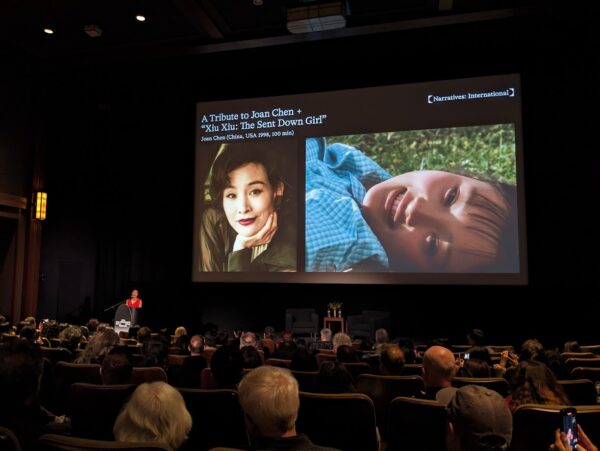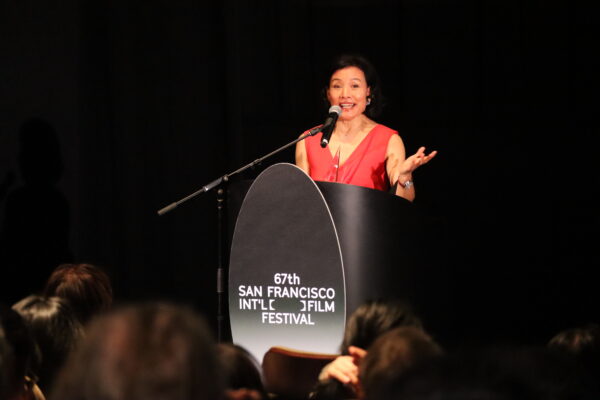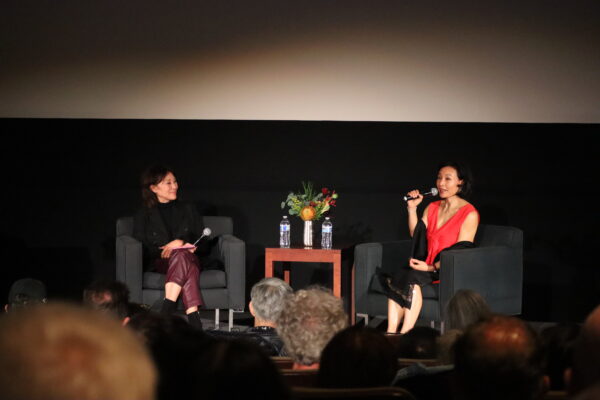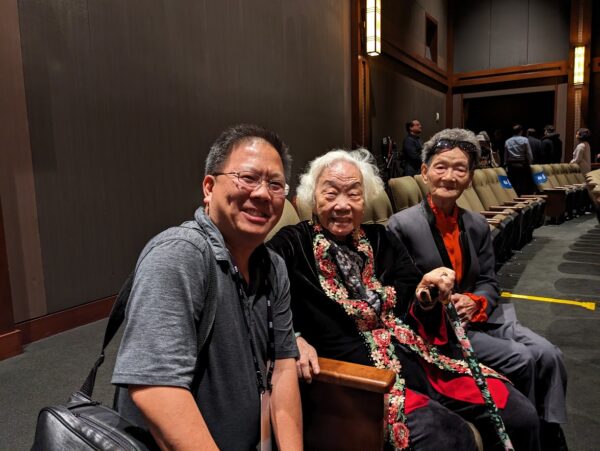 I had the honor and pleasure of attending the 2024 San Francisco Film Festival and was excited to see iconic filmmaker Joan Chen being honored at this year’s festival. I most remember her in her roles in The Last Emperor and Saving Face. Prior to the highlight reel and the interview/Q&A for Chen’s tribute, Chen gave some opening remarks and then was interviewed by friend and president of the Academy of Motion Picture Arts and Sciences, Janet Yang.
I had the honor and pleasure of attending the 2024 San Francisco Film Festival and was excited to see iconic filmmaker Joan Chen being honored at this year’s festival. I most remember her in her roles in The Last Emperor and Saving Face. Prior to the highlight reel and the interview/Q&A for Chen’s tribute, Chen gave some opening remarks and then was interviewed by friend and president of the Academy of Motion Picture Arts and Sciences, Janet Yang.
Joan reflected on her journey from China to the United States and her transition from acting to directing. She shared insights into her motivations, challenges, and experiences in both Hollywood and China. Joan also discussed the cultural differences between the two countries and the evolving nature of their relationship, particularly in the context of film collaboration and how that has unfortunately changed.
She highlighted the importance of curiosity, understanding, and collaboration between the U.S. and China despite political tensions. Throughout the interview, Joan’s resilience, passion for storytelling, and commitment to her craft shined through, reflecting her diverse career and contributions to both American and Chinese cinema.
After the interview and Q&A, there was a screening for Chen’s directorial debut film, Xiu Xiu: The Sent Down Girl.
Review of Xiu Xiu: The Sent Down Girl (some Spoilers)
Based on Yan’s 1981 short story “Celestial Bath”, the film is set in the 1970s during the. Cultural Revolution’s Down to the Countryside Movement in People’s Republic of China It premiered at the 1998 Berlin International Film Festival and released in the United States on May 7, 1999. As one might have known, during the Cultural Revolution in China, Mao Zedong’s regime sent countless adolescents (initially thought about 11 million, but Chen said subsequent research has put that number as high as 20 million) into the Chinese countryside.
In the film, Xiu Xiu (Lu Lu) is sent to rural lands (film was shot in a remote part of Tibet) in order to participate in various kinds of physical labor. Xiu Xiu is torn away from her caring relatives and close friends to live and work with Lao Jin (Lopsang), a rancher. Though he treats Xiu Xiu kindly, she yearns for her old life and eventually turns to a degrading life of prostitution in hopes of earning the means to return home.
I found the pacing of the film a little slow and the overall story is very distressing. The ending is honestly very depressing. It made me wonder how widespread this kind of experience happened during the Down to the Countryside Movement. Given the nature of the topic of the film, I amazed that Chen was able to keep the project a secret. Overall, Xiu Xiu: The Sent Down Girl was an important film to be made, and I’m not sure if the story could be told any other way.
On Rotten Tomatoes, the film is 96% “fresh” based on 24 reviews and 84% Audience Score with over 1,000 ratings.
The Stars of Nai Nai & Wài Pó
After the screening, I was happy to get a photo with the stars of Nai Nai & Wài Pó, with the titular figures there at the Joan Chen tribute. In the opening remarks, one of the speakers had mentioned they were in the audience. Sean Wang’s mom was kind enough to take the photo:
What an honor!











